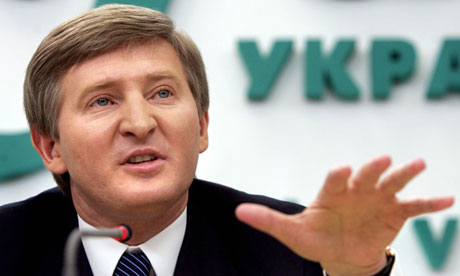Hatred of dissent, it seems, is the new normal in British politics. “Crush the saboteurs,” screamed the Daily Mail, announcing Theresa May’s calling of a snap election. “Crush pro-EU saboteurs, PM,” advised the Sun for good measure. But what exactly are saboteurs and how should we crush them?
Surprisingly, the language of hard-Brexit Tory supporters is now that of the Russian Revolution. In 1918, the Bolsheviks dissolved Russia’s democractically elected constituent assembly on the grounds that it was a front for the bourgeois counter-revolution. “All power to the Soviets!” Lenin declared. “We shall crush the saboteurs.” For a while, it had seemed as though neo-Soviet rhetoric was the preserve of squabbling factions within the Labour party, with both Corbyn and his opponents accused of organising “purges”. But since three judges defending the rights of the British people were denounced in the rightwing press last autumn as “enemies of the people”, it appears to have become the de facto mode of political argument on left and right. Supporters of the two main parties are complicit in creating an ambient political atmosphere of paranoid permanent revolution. (Rather sweetly, the Mail devoted pages two and three on 19 April to a Soviet-style heroic-agriculture tribute to a British farmer who insists on ploughing his field with horses, which is just as well, since he probably won’t be able to afford a tractor, post-Brexit.)
The political saboteurs Lenin complained of were alleged conspirators, working behind the scenes to ruin his virtuous plans, but the word actually originates in the language of industrial disputes. “Saboteur” and “sabotage” are of French origin, and a popular etymology relates them to “sabots”, the wooden clogs that Luddite workers supposedly threw into machines to break them. Whether or not that is true, the verb “saboter”, meaning to deliberately mess something up, came to be used in the late 19th century by anarchist thinkers, and “sabotage” appeared in English in 1910 to describe the destructive actions of French railway strikers.
The word’s origins in the struggle between workers and capital, then, makes it an appropriate term for enemies of the modern Conservative party in particular. (Home counties Tories, of course, are especially likely to disdain people thus characterised, given their historic battles with “hunt saboteurs”.) And it is no doubt thrilling for well-lunched tabloid editors to dream of “crushing” people they wouldn’t dare pick a physical fight with in person. But Theresa May did not call anyone a saboteur, so perhaps this is all just an unfortunate case of macho projection.
Yet May’s speech announcing the election was, paradoxically, profoundly anti-democratic. “At this moment of enormous national significance, there should be unity here in Westminster, but instead there is division,” she complained. “The country is coming together, but Westminster is not.” This rather charmingly combined a totally made-up fact (the country is coming together) with a bizarre whine that parliamentary democracy is functioning as it should. Any persistent total unity in an elected assembly, after all, would signal that it had been hijacked by a fascist. If there were no “division” in Westminster, we would find ourselves in a de facto one-party state, in which the wisdom of the dear leader is all – a vision of “strong leadership” at which Vladimir Putin would nod sagely.
May’s contempt for the democratic functioning of government neatly mirrors Lenin’s own nearly a century ago, when he asserted that the workers’ councils were better than any democratically elected body: “The Soviets, being revolutionary organisations of all the people, of course became immeasurably superior to all the parliaments in the world.”
In Theresa May’s implicit view, too, superior to all the parliaments in the world would be a British establishment that offered zero obstacles to her “getting on with the job” of delivering what she considers best for the British people (whatever that turns out to be, since apparently no one needs to know right now). In May’s habitual way of phrasing things, the normal workings of parliament – in which MPs and members of the Lords may disagree with a government’s plans – are nothing but “playing politics” or “political game-playing” which must not be allowed to continue lest it cause “damaging uncertainty and instability”. To cast disagreement as game-playing is to characterise dissent as fundamentally unserious, and to bring the very idea of politics into disrepute.
And so, despite her disavowal of the term, the tabloid characterisation of May’s plan as one of crushing the “saboteurs” does not seem inaccurate. Indeed, the recent finale of the TV drama Homeland, which saw the newly elected president Elizabeth Keane holed up in the Oval Office ordering arrests of senators and congressmen, now looks as relevant to British as to American politics. When you have a hammer, everything looks like a nail; when you are a paranoid aspiring autocrat, everyone is a potential saboteur.
In George Orwell’s Nineteen Eighty-Four, Winston Smith invents the heroic historical figure Comrade Ogilvy, who had “no aim in life except the defeat of the Eurasian enemy and the hunting-down of spies, saboteurs, thought-criminals, and traitors generally”. Theresa May’s world, too, seems to have shrunk to one in which the greatest enemies are the enemies within and democracy must be democratically eliminated for the good of the people.


